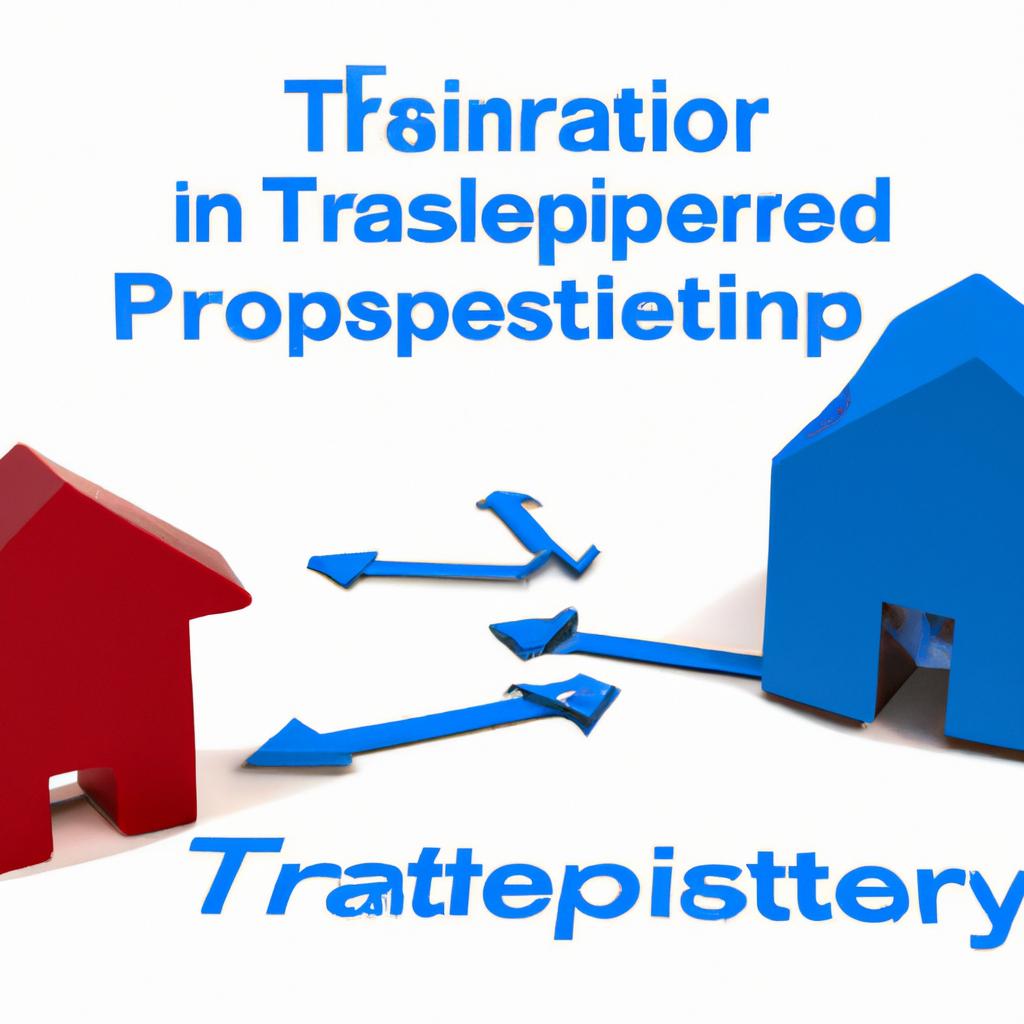In the realm of estate planning, individuals often seek creative strategies to minimize their tax liabilities and preserve their assets for future generations. One common inquiry that our team at Morgan Legal Group encounters is whether transferring ownership of one’s home to their children can effectively mitigate inheritance tax obligations. While this approach may seem straightforward, the complexities of tax law and the potential implications for both the homeowner and their heirs require careful consideration. Join us as we explore the intricacies of this estate planning tactic and the crucial factors that should inform your decision-making process.
Understanding the Implications of Transferring Property to Children
In transferring your property to your children’s names, there are several implications that must be carefully considered. While it may seem like a straightforward way to avoid inheritance tax, there are important legal and financial consequences to be aware of. It is crucial to understand the potential risks and benefits before making such a decision.
- Loss of control over the property
- Gift tax implications
- Potential Medicaid eligibility issues
- Inheritance disputes among heirs
Consulting with an experienced estate planning attorney can help you navigate the complexities of transferring property to your children and ensure that your wishes are carried out effectively.

Exploring the Legal and Tax Ramifications of Inheritance Planning
When it comes to estate planning and inheritance tax, many people wonder if they can simply transfer their assets, such as a house, into their children’s names to avoid taxes. While this may seem like a straightforward solution, it is important to understand the legal and tax ramifications of such a decision. Transferring property to your children may have unintended consequences, and it is crucial to consult with an experienced estate planning attorney before making any decisions.
There are several factors to consider when exploring the option of putting your house in your children’s name to avoid inheritance tax. These include:
- Tax implications: Transferring property to your children could have gift tax implications, and it is important to understand how this may affect your overall estate plan.
- Control over the property: Once you transfer the property to your children, you may lose control over it, which could impact your ability to make decisions about the property in the future.
- Legal considerations: There are legal requirements and potential pitfalls to consider when transferring property to your children, and it is essential to consult with a knowledgeable attorney to navigate these complexities.

Analyzing the Pros and Cons of Gifting Property to Minimize Tax Burden
When considering gifting property to minimize the tax burden, it is important to weigh the pros and cons carefully. One of the main advantages of transferring property to your children is the potential to reduce or even eliminate estate taxes upon your passing. This can help preserve your wealth and ensure that your loved ones receive the full value of your assets.
However, it is essential to be aware of the potential drawbacks as well. By gifting property to your children, you may lose control over the asset and it could be subject to creditors or divorce settlements. Additionally, there may be gift tax implications depending on the value of the property and the specific circumstances of the transfer. Consulting with a knowledgeable estate planning attorney, like the experts at Morgan Legal Group in New York City, can help you navigate these complex issues and make informed decisions.

Consulting with Estate Planning Experts for Personalized Advice
When considering estate planning strategies to minimize tax liabilities, it is essential to seek personalized advice from estate planning experts. One common question that individuals often ask is whether they can transfer their house into their children’s names to avoid inheritance tax. While this may seem like a straightforward solution, the implications of such a decision can be complex and far-reaching.
By consulting with our team of experienced estate planning attorneys at Morgan Legal Group, you can gain valuable insights into the potential consequences of transferring your property to your children. Our experts can provide tailored advice based on your unique circumstances, helping you navigate the legal complexities of estate planning and make informed decisions that align with your long-term goals. With personalized guidance and comprehensive strategies, you can protect your assets and secure a stable financial future for your loved ones.
Q&A
Q: Can I put my house in my children’s name to avoid inheritance tax?
A: The short answer is yes, you can transfer ownership of your house to your children in order to potentially reduce the amount of inheritance tax that will be owed upon your passing.
Q: How does transferring ownership to my children help avoid inheritance tax?
A: When you transfer ownership of your house to your children, you are effectively removing the value of the house from your estate. This can reduce the overall value of your estate and potentially lower the amount of inheritance tax that will need to be paid.
Q: Are there any potential drawbacks to putting my house in my children’s name?
A: Yes, there are several potential drawbacks to transferring ownership of your house to your children. For example, if your children were to sell the house in the future, they could be subject to capital gains tax on any increase in value since the transfer. Additionally, there may be gift tax implications depending on the value of the house and the size of your estate.
Q: What are some other ways to reduce inheritance tax?
A: There are several other ways to potentially reduce the amount of inheritance tax that will be owed upon your passing. For example, you could make use of tax-free thresholds, set up trusts, or make gifts to your children during your lifetime.
Q: Is transferring ownership of my house to my children the best option for me?
A: Transferring ownership of your house to your children may be a viable option for some individuals, but it is important to carefully consider the potential drawbacks and consult with a financial advisor or estate planning attorney before making any decisions. Ultimately, the best option will depend on your individual circumstances and goals.
To Conclude
In conclusion, while putting your house in your children’s name may seem like a tempting solution to avoid inheritance tax, it is important to consider the potential consequences and seek expert advice before making any decisions. Inheritance tax laws can be complex and subject to change, so it is crucial to weigh all options carefully to ensure the financial well-being of your loved ones in the long run. Remember, proper estate planning is key to securing your legacy and minimizing tax liabilities. Thank you for reading!
 As a homeowner, one of your main concerns may be the amount of taxes you will have to pay on your property. And when it comes to transferring your assets to your children, the question of inheritance tax often arises. Many may wonder if transferring the ownership of their house to their children’s names is a viable option to reduce or avoid inheritance tax. In this article, we will explore the answer to this question and delve into the intricacies of putting your house in your children’s name to avoid inheritance tax.
As a homeowner, one of your main concerns may be the amount of taxes you will have to pay on your property. And when it comes to transferring your assets to your children, the question of inheritance tax often arises. Many may wonder if transferring the ownership of their house to their children’s names is a viable option to reduce or avoid inheritance tax. In this article, we will explore the answer to this question and delve into the intricacies of putting your house in your children’s name to avoid inheritance tax.
Firstly, let’s understand what inheritance tax is and how it works. In simple terms, inheritance tax is a tax that is applied to the inheritance of an individual’s assets after their death. In most countries, including the United States, inheritance tax is only applicable to estates above a certain value. The tax rate varies depending on the value of the estate and the relationship between the deceased and the beneficiary. It is essential to note that each state in the US has its own inheritance tax laws, and it’s vital to familiarize yourself with them before making any decisions.
Now, coming back to the question at hand – can putting your house in your children’s name help you avoid inheritance tax? The short answer is yes, but it’s not as simple as it may seem. Let’s break it down further.
1. Gifting your house to your children
One way to transfer your house to your children’s ownership is by gifting it to them. As per the current inheritance tax laws in the US, you are allowed to gift up to $15,000 per year to each of your children without incurring any gift or estate taxes. However, if the value of your house exceeds this limit, you will have to pay gift tax on the excess amount. Moreover, gifting your house may also have long-term tax implications for your children, such as capital gains tax when they sell the property in the future. It’s essential to consult a financial advisor and consider all factors before making this decision.
2. Giving your children a life estate
Another option to transfer your house to your children’s name is by giving them a life estate. In simple terms, this means that you transfer the ownership of the house to your children while retaining the right to live in it until your death. While this may seem like a viable option, it’s essential to note that you will still be responsible for maintaining and paying property taxes on the house. Additionally, once the ownership is transferred, you will need your children’s permission for any changes or alterations to the property, and they may also be held liable for any accidents or injuries that occur on the property.
3. Creating a trust
Creating a trust is another way to transfer your house to your children’s name while avoiding inheritance tax. A trust is a legal entity that holds the assets on behalf of the beneficiaries, in this case, your children. When you transfer your home to a trust, you are essentially removing it from your estate, thereby reducing the value of your estate and the potential inheritance tax. The trust can also include instructions for the distribution of the assets, ensuring that your children receive the property as per your wishes. It’s important to note that creating a trust can be a complex and expensive process, and it’s crucial to seek professional help to ensure the trust is set up correctly.
Benefits of putting your house in your children’s name
– Avoid or reduce inheritance tax
– Potential protection from creditors and lawsuits
– Keeps the property within the family
– Can potentially avoid probate
Practical tips to keep in mind
– Make sure the transfer is done correctly to avoid any unwanted tax implications or legal issues.
– Consider consulting a financial advisor or an estate planning attorney before making any decisions.
– Keep in mind any potential tax implications for your children, such as capital gains tax.
– Consider all the potential risks and benefits before transferring ownership of your house to your children.
Real-life case study
Mr. and Mrs. Johnson, both in their late seventies, decided to transfer the ownership of their house to their children to avoid inheritance tax. However, they were unaware of the potential tax implications of gifting the property or creating a life estate. They consulted with a financial advisor before making any decision and found out that creating a trust would be the best option for them. With the help of an estate planning attorney, they created a trust that ensured their children would receive their house after their death while avoiding hefty inheritance taxes.
Final thoughts
Transferring the ownership of your house to your children to avoid inheritance tax can be a useful strategy, but it’s essential to understand the potential risks and implications. It’s always advisable to consult with a professional financial advisor or an estate planning attorney to ensure that the transfer is done correctly and in the best interest of your children and your estate.
In conclusion, putting your house in your children’s name can be a viable option to avoid inheritance tax, but it’s vital to consider all the factors and seek professional guidance before making any decisions.

